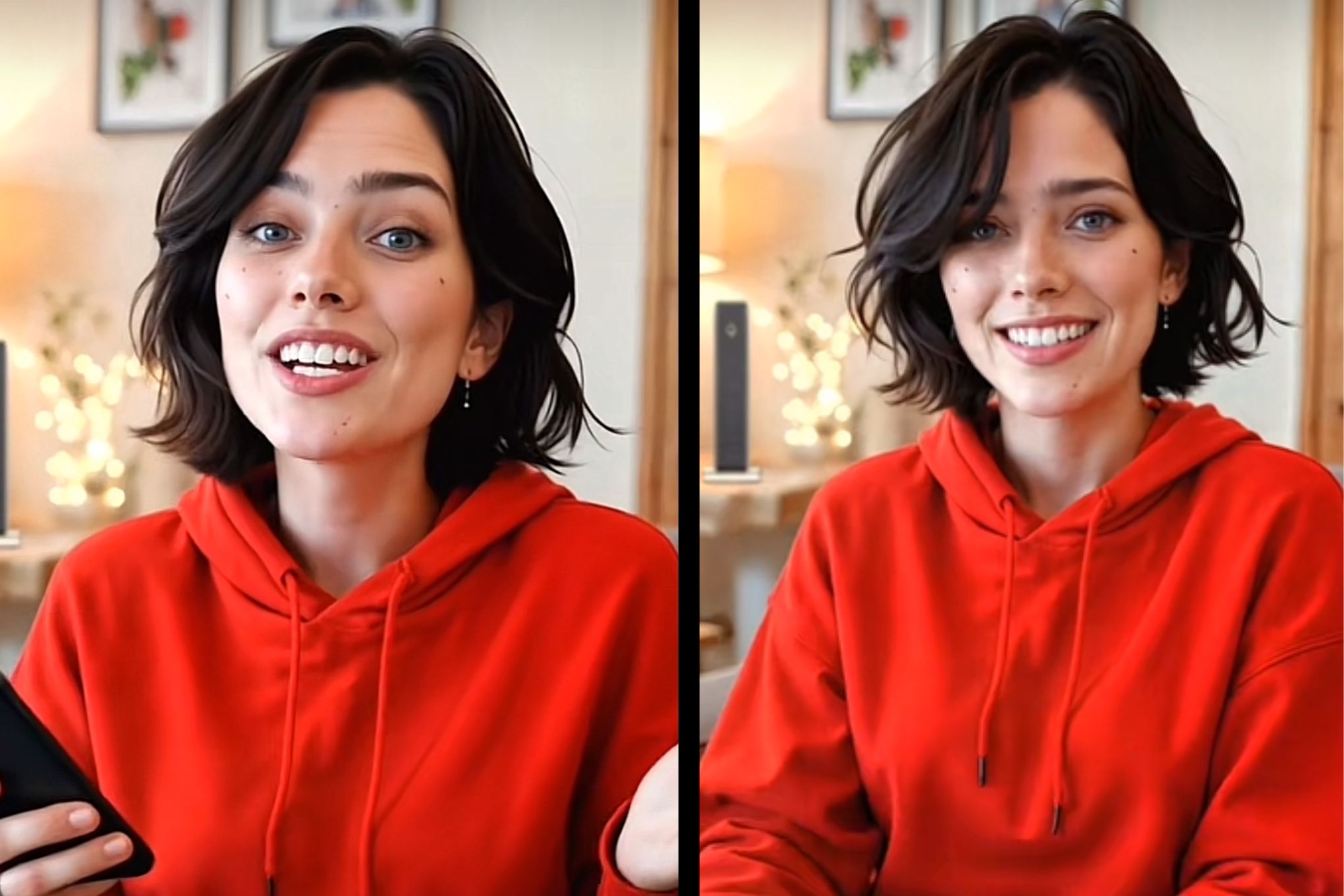
I opened TikTok while visiting Germany last week and stumbled across a Vodafone ad being presented by a woman who probably doesn’t exist. The ad includes several “tells” that suggest the presenter was artificially created using generative AI — the unnatural style and movement of her hair, the way her moles disappear, and the uncanny valley vibe of her facial expressions — and Vodafone confirmed my suspicions in its video comments.
In response to a commenter asking why Vodafone couldn’t put “a real person in front of the camera,” the company said it was “testing different styles of advertising — this time with AI,” according to machine translation of the German text. In another comment, Vodafone said that “AI is so much a part of everyday life these days that we also try it out in advertising.”
As an ad, it certainly captured my attention, but only because my brain registered that there was something “off.”
This isn’t the first time that Vodafone has embraced generative AI in its ads, having released a commercial last year in which every shot was AI-generated. Fake influencers created using artificial intelligence are also rising in popularity, according to a New York Times report, with notable examples like Lil’ Miquela — a creation of tech company Dapper Labs — having already appeared in campaigns for Calvin Klein, Prada, and BMW.

